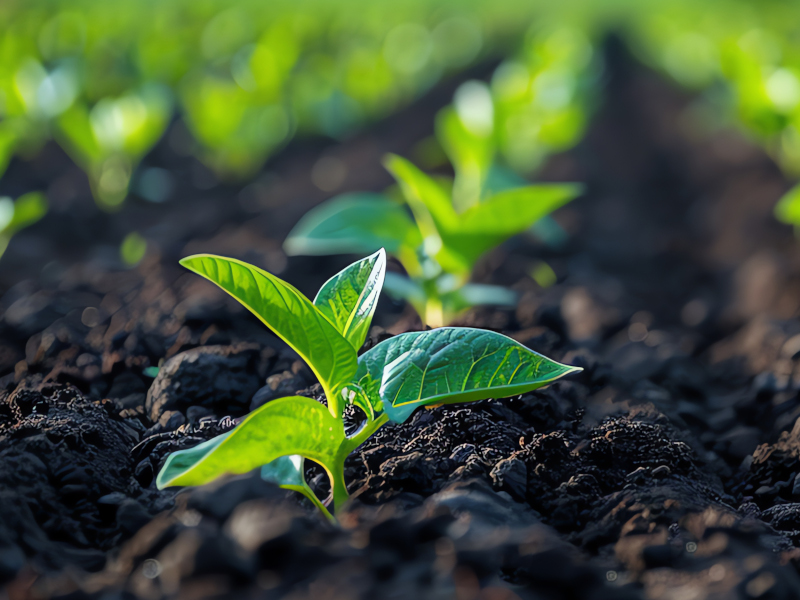Yaoundé, le 19 décembre 2024 (CEA) – L’Afrique centrale peut mettre un terme à une situation paradoxale où elle dépend des importations massives en produits alimentaires pour se nourrir alors qu’elle détient un potentiel unique pour une agriculture compétitive capable de satisfaire les besoins de sa population.
L’insécurité alimentaire grandissante dans la sous-région est imputable, entre autres, à la faiblesse de la productivité agricole, à la hausse du cours des engrais exacerbée par le double choc de la pandémie de COVID-19 et du conflit russo-ukrainien ainsi qu’à la persistance des prix élevés des denrées alimentaires importées.
Réunis dans le cadre d’un webinaire ce 19 décembre 2024 sur le thème « Investir dans les Zones économiques spéciales des engrais et Chaînes de valeur pétrochimiques pour révolutionner l’agriculture en Afrique centrale », les experts du continent appellent les pays de la sous-région à intensifier la production agricole par la mise en place de Zones économiques spéciales pour la production d’engrais.
Le Vice-Président de l’Alliance pour la Révolution verte en Afrique (AGRA). Boaz Keizire, indique que « malgré d’abondantes terres arables et en dépit de l’engagement pris par les chefs d’État au sommet de Malabo en 2014, les systèmes agricoles du continent et de l’Afrique centrale continuent d’enregistrer de faibles rendements. À titre d’illustration, la productivité à l’hectare du maïs est de 1,7 tonne en Afrique tandis qu’elle oscille entre 7 et 8 tonnes aux États Unis d’Amérique. Les pays de l’Afrique centrale doivent travailler à enrichir les sols qu’ils possèdent ».
Les dotations factorielles ne manquent pas. S’appuyant sur une étude en cours de finalisation réalisée par le Bureau sous-régional de la CEA pour l’Afrique centrale, Bertrand Ngnie fait remarquer que la « sous-région est richement dotée en intrants nécessaires à la production d’engrais azotés. L’Afrique centrale dispose d’importantes réserves de pétrole, de gaz naturel, de potasse et de phosphate qui justifient le développement d’une Chaîne de valeur régionale des engrais NPK ».
La sous-région peut tirer avantage des bonnes pratiques des pays tels que l’Égypte, le Maroc ou encore l’Afrique du Sud. Samir Elkareish a suggéré « l’établissement d’une plateforme composée des pays de la sous-région et des pays avancés ainsi que des partenaires pour une coalition menant vers la production des engrais et l’augmentation de la production agricole en Afrique centrale ».
Le Directeur du Bureau sous-régional de la CEA pour l’Afrique centrale, Jean-Luc Mastaki, a souhaité la mise en place d’une plateforme d’échanges élargie à diverses parties prenantes en vue de poursuivre les discussions sur les enjeux, défis et opportunités de la transformation agricole de l’Afrique centrale. Il a, par ailleurs, souligné que « la production locale et l’utilisation accrue de fertilisants combinées à une amélioration des techniques de production agricole contribueraient à terme à affranchir progressivement l’Afrique centrale de sa grande dépendance à l’importation de produits alimentaires qui accroît la vulnérabilité des populations, notamment les plus pauvres, aux chocs externes ».
Renseignements aux médias
Zacharie Roger MBARGA - Chargé de Communication,
Bureau sous-régional de la CEA pour l’Afrique centrale
Commission économique des Nations unies pour l’Afrique
637, rue 3.069, Quartier du Lac, Yaoundé, Cameroun
Tél : (+237) 222504348
Courriel : zacharie.mbargayene@un.org
Publié par :
Section de la communication
Commission économique pour l’Afrique
B.P. 3001
Addis-Abeba
Éthiopie
Tél. : +251 11 551 5826
Courriel : eca-info@un.org
